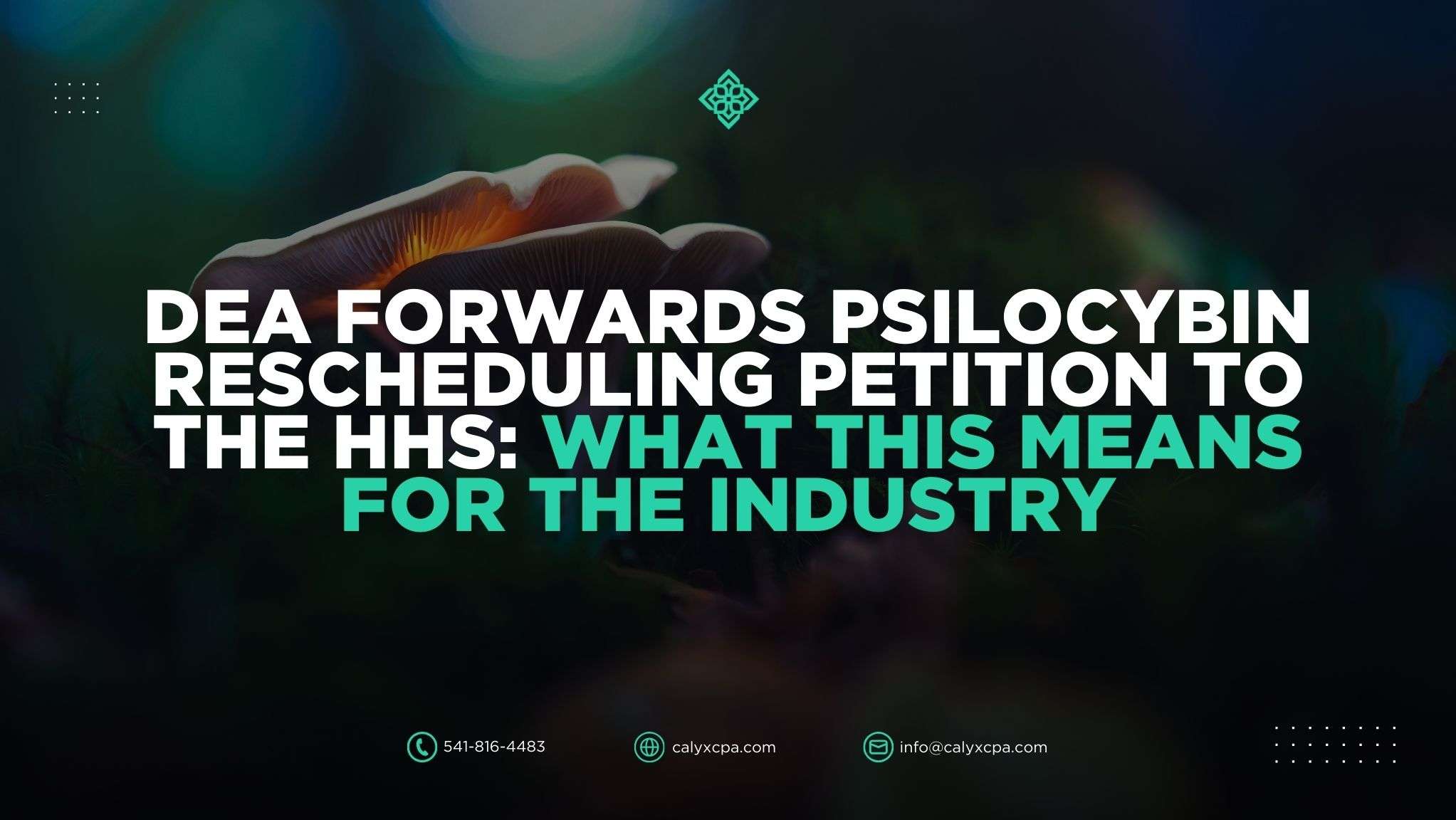MarijuanaMoment reported last week that the DEA forwarded a petition to move psilocybin from Schedule I to Schedule II of the Controlled Substances Act (CSA) to the U.S. Department of Health and Human Services (HHS).
The push for this change has been led by Dr. Sunil Aggarwal, the Co-Founder of Advanced Integrative Medical Science (AIMS) Institute in Seattle, who has been advocating for psilocybin’s use in alleviating existential suffering for terminally ill patients. After years-long legal battles, their persistence has forced the government’s hand, and federal officials must now take a serious look at whether psilocybin belongs in a lower classification.
Why This Matters
This is excellent news for the psilocybin industry. When President Joe Biden requested HHS to review cannabis’s scheduling in 2022, HHS delivered a recommendation in less than a year to move cannabis from Schedule I to Schedule III.
For businesses “trafficking” psilocybin, the implications are significant. Currently, ketamine, another psychedelic, is included as a Schedule III substance under the CSA, but it has many of the same qualities and risks associated with psilocybin. The results of the HHS review will likely indicate that psilocybin should not only be moved out of Schedule I and into Schedule II, but that it should be more appropriately classified as a Schedule III substance.
As outlined in our recent blog post, such a result would mean IRS Code Section 280E no longer applies. The language in 280E doesn’t say it applies to substances “listed on” Schedule I or II, but rather those that “fit the meaning” of a Schedule I or II drug according to the CSA. Once HHS issues its report and acknowledges psilocybin has medical use, it’s safe under the guidance of a professional, and not highly addictive, there will be a substantial argument that 280E no longer applies, even before the DEA’s rulemaking process concludes.
It’s important, however, to manage expectations. Even if HHS recommends and DEA follows through on rescheduling, psilocybin will still be illegal outside of narrow federal frameworks, unlike ketamine, which is FDA-approved. Without FDA approval, psilocybin cannot be manufactured, prescribed, or distributed legally at the federal level.
This means interstate commerce will remain prohibited, and companies operating in state-regulated programs like those in Oregon and Colorado will still be restricted to those jurisdictions. Additional administrative steps will also be required. Once rescheduling is finalized, the IRS will need to issue guidance that psilocybin no longer falls under 280E before businesses can file taxes like ordinary businesses.
The DEA’s decision to forward psilocybin’s rescheduling petition represents progress. It validates the work of advocates like AIMS, MAPS, and other plant medicine advocates, and it triggers a shift in how federal agencies have to approach psychedelic medicine. While it does not bring legalization, it sets the stage for what could be an eventful 2026.
With Donald Trump hinting at revisiting cannabis rescheduling, and now the DEA advancing psilocybin rescheduling, the plant medicine industries may see meaningful change in the lead-up to the mid-term elections.
About the Author
Justin Botillier is a cofounder and CEO of Calyx CPA, a firm specializing in tax preparation, accounting, and business consulting for the cannabis and psychedelic industries. With two decades of experience in taxation and over a decade serving the cannabis industry, Justin and his team have helped clients save millions of dollars by leveraging aggressive and defensible strategies to mitigate the impact of 280E.

